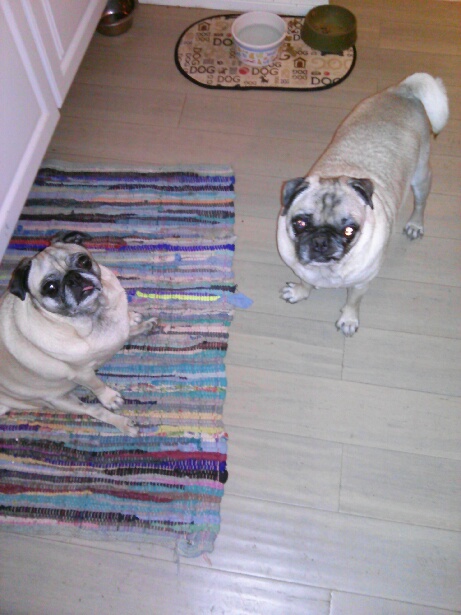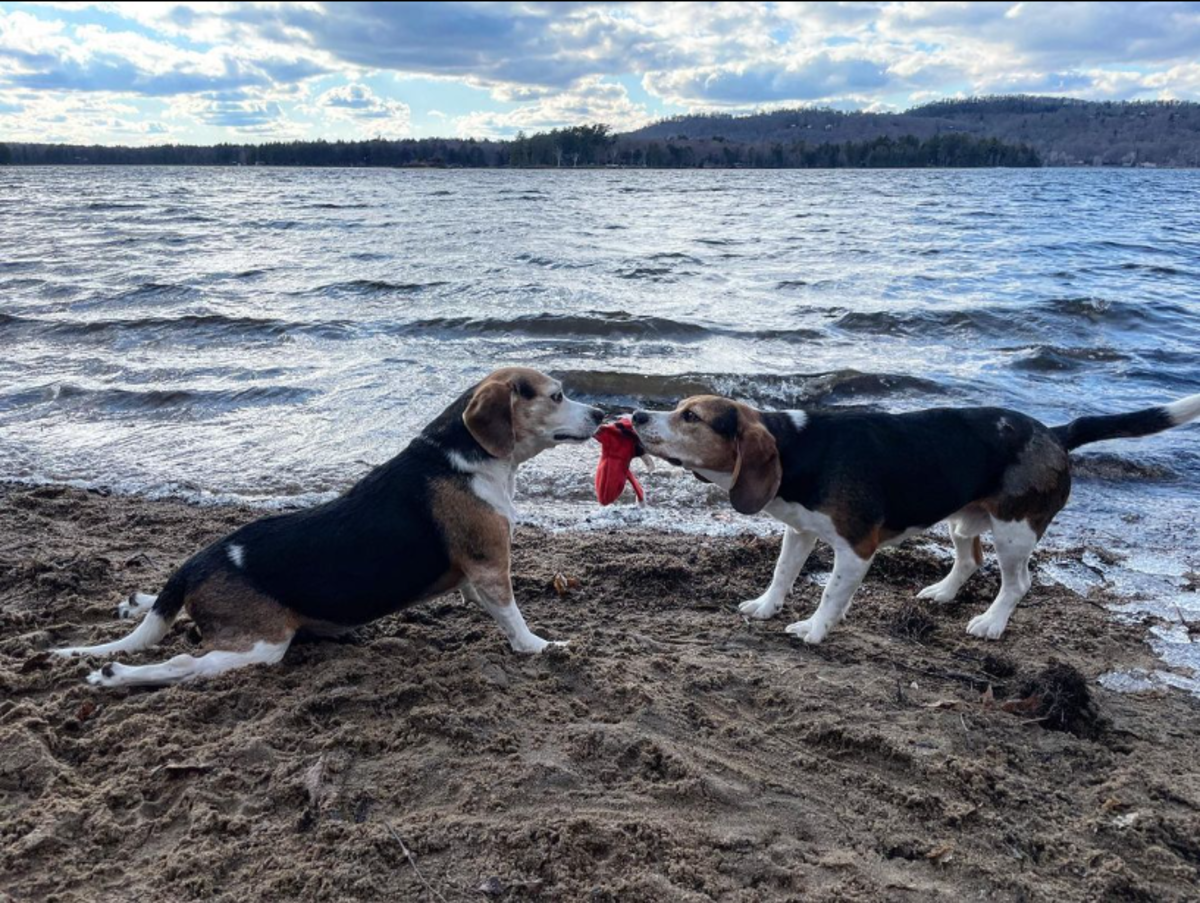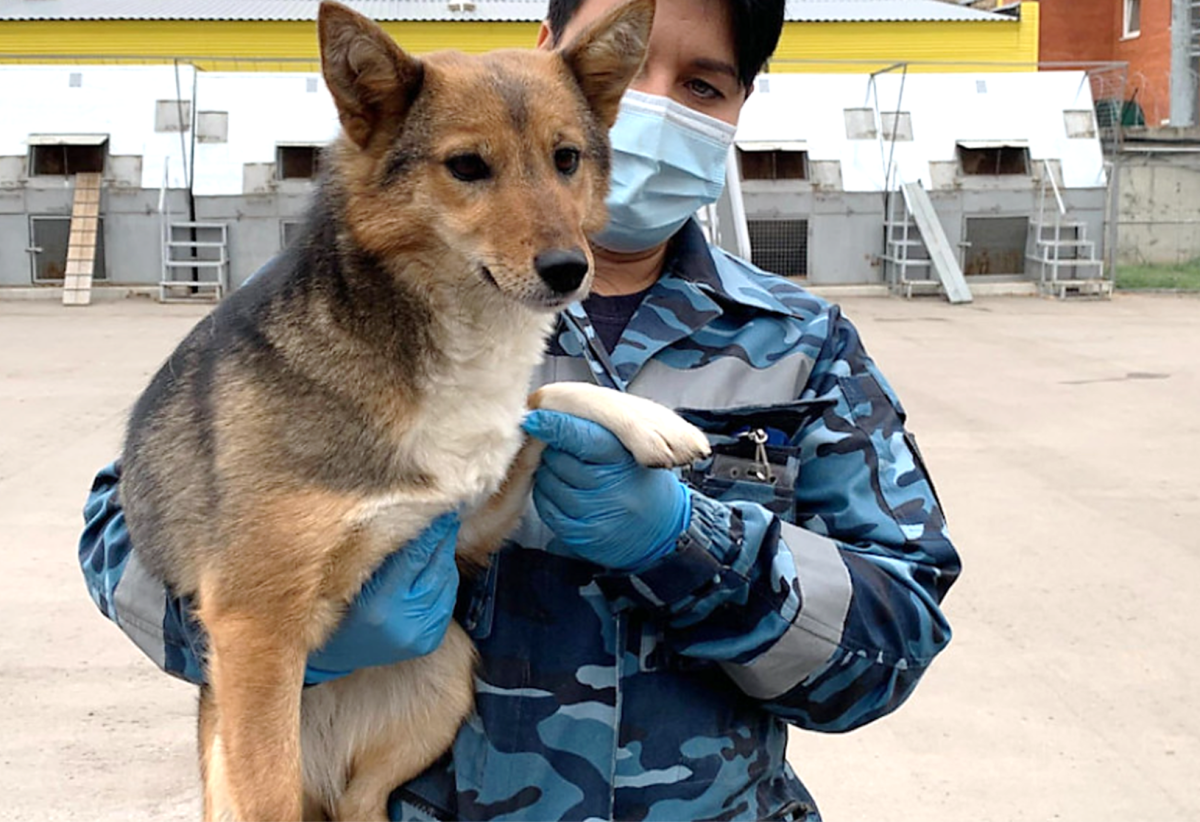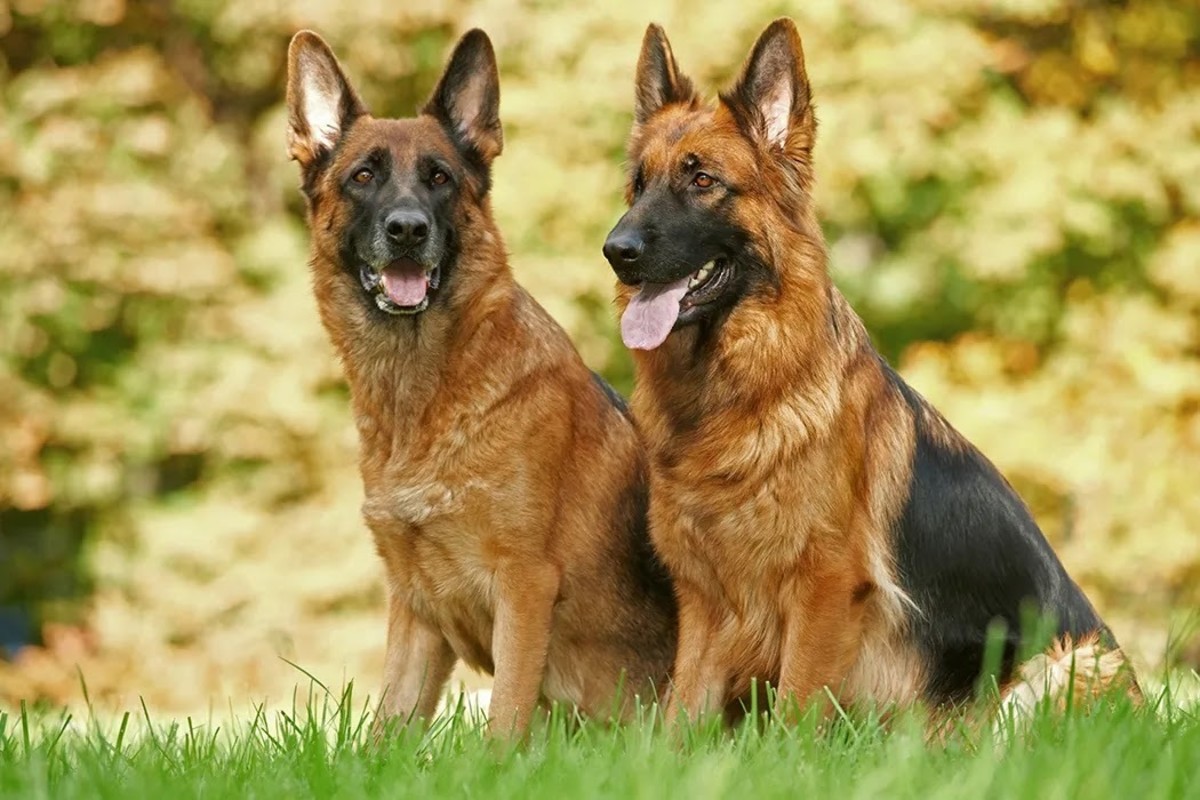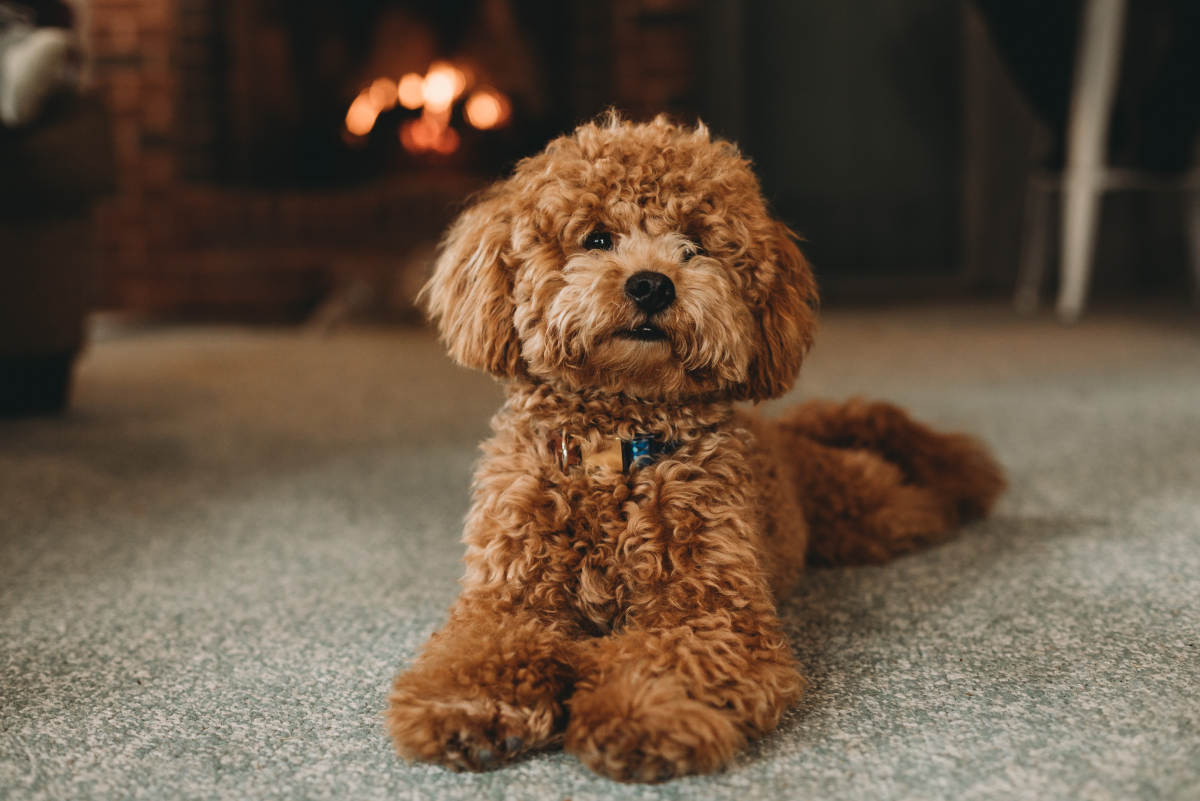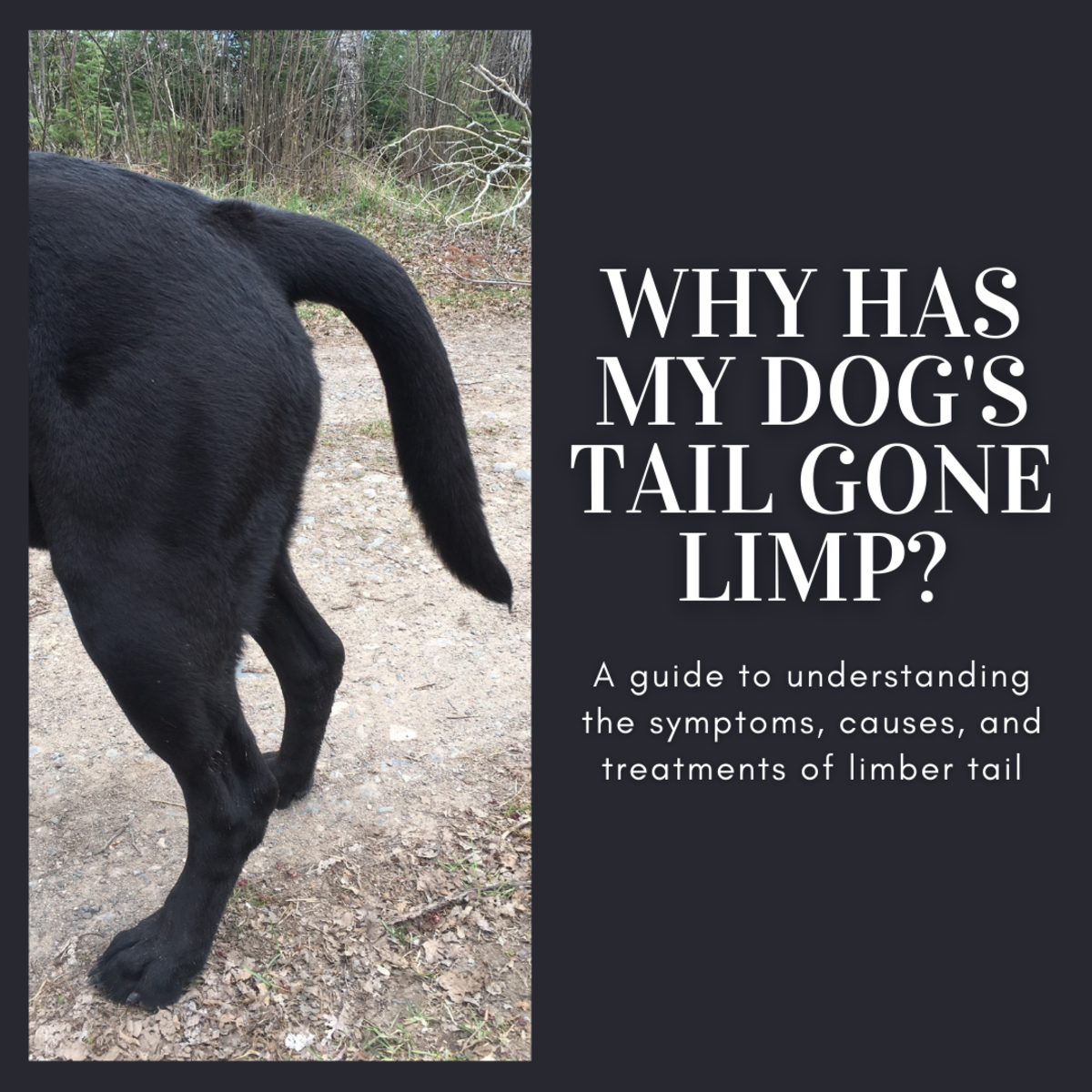Nearly Everyone Should Have at Least One Dog
Why Should I Get a Dog?
People choose living with dogs for different reasons. the number one reason for me is the sheer joy they bring to my life. This is the same reason I suspect many people initially get a dog, or two, or three...But what if you've never had a dog before and worry that one would impede your life? Here is my answer to that:
According to WebMD, dogs have many health benefits as well. They help lower hypertension (blood pressure), they can reduce stress levels, and children raised with animals are less likely to develop allergies to them later in life (http://www.webmd.com/hypertension-high-blood-pressure/features/health-benefits-of-pets#1).
Even the simple act of petting a dog can reduce stress and give a person the feeling of comfort (http://www.npr.org/sections/health-shots/2012/03/09/146583986/pet-therapy-how-animals-and-humans-heal-each-other).
Aside from the health benefits, having a companion dog is a responsibility that keeps us based from the distractions of every day life, work, or family pressures. Nothing brings us home faster than knowing our hungry dogs are waiting for us at the door, and nothing can bring much more joy than seeing the loving gaze our dogs give us when we speak to them, or give them attention.
WebMD also mentions that dog owners typically get more exercise because dogs need to be walked and played with. Another great break from the stresses of life.
When you have a dog, you're never alone, you're never judged, and you're never under-appreciated. It's unconditional love that develops a bond like no other. You just want to be with your dog and take your dog everywhere, and they want the same!
Our dogs can even sense when we're not feeling well. I've seen a marked difference in behavior with the dogs I work with when their companion human isn't feeling well. One client is a cancer survivor who has good days and bad days. I can always tell how he's feeling by the way his dog acts when I come for our daily walks. Buddy (the dog), is reluctant to leave the house, and when we do, he keeps trying to turn around and go back home. When we do start returning home, he can't get there fast enough. Animal Planet says a dog's sense of smell is a million times great than ours, so obviously they can smell things we can't; such as drugs, bombs, and disease...yes, disease. They also have a sixth sense, suggesting they also notice things we cannot (http://www.animalplanet.com/pets/can-dogs-detect-human-health-problems/). Like with Buddy, he can sense when his person isn't feeling well, and it concerns him greatly.
During the times they sense something is wrong with us are the times they offer their most sincere sympathies. They will want to be closer to us, they'll want to cuddle and lick and possibly become somewhat of a pest. This is all out of their love and devotion to us, and is just another reason most of us should have dogs.
The pug is a calm, gentle breed

Which Breed Should I Choose?
When choosing a dog, it's important to know the temperament, basic behavior, and traits of the breed. Certain breeds of dogs do not go well with children, for instance. The schnauzer and cocker spaniel are two of those breeds; something few people knew about when Disney's Lady and the Tramp came out glamorizing the cocker as a family-friendly breed. If you get a mixed breed (mutt) from a shelter, you never really know what you're going to get, but the chances are good that you'll know right away whether he/she's the dog for you. Maybe it's something in the eyes, or the way the dog behaves around you. It's a sense you'll get. Plus, the people at the shelter or rescue may have suspicions about which breed are in the dog, so that can help you in researching the various breeds.
For me, I spent years researching before I decided to get a miniature schnauzer and I still didn't know everything I needed to know about the breed.
Pebbles was the first dog I'd ever had, and I loved the way the schnauzer breed looked and the fact that they were very smart. What I didn't take into consideration was that they tended to be neurotic and were pretty high maintenance dogs. I loved her, though, and had her with me until she was twelve. When my schnauzer was still young, I adopted Oscar, a pekapoo puppy. He was super cute and sweet as could be, but much too hyper for me. You can almost guarantee that you're going to have a hyper dog while it's in its puppy stage, no matter what the breed, but Oscar never calmed down. He was hyper nearly until the day he died.
When Pebbles died, I got a pug puppy I accidentally fell in love with at a pet store I really shouldn't have been trolling. Rainbow was sick and near death at 3lbs., but we didn't know that until we had her for a week. It was hard work with all the health issues she had on top of my own, but when she grew out of her eating-everything-puppy-stage, she quickly became the love of my life, and now, nine years later, I'm addicted to the breed. Their personalities and temperament mesh perfectly with my own and so I began fostering a series of them through a local rescue group. I successfully parted with six fosters before Oliver came into my life and I had to adopt him.
Fostering is an excellent way of identifying what breed or type of dog is right for you. Not only are you 'shopping' for your own dog, you're giving a temporary home to a dog in need. There are breed specific rescues in nearly every city across the nation, and non-breed specific rescues as well. Volunteering at animal shelters is another way to get to know what dog you may want. He/she might be sitting there right now patiently waiting for you!
If this is your first dog, a smaller breed might be a better choice, but if you like big dogs, just do your best to research the dispositions and traits of the breed you're interested in. I've always preferred small dogs that are not real energetic, but working in the pet care field I've found some larger breeds that are just as lazy. The English mastiff and greyhound are among my favorites.These are good breeds for apartment dwellers who like larger dogs. Greyhounds are known for their racing capabilities, but they really don't require, or desire, a lot of exercise.
The best advice I can give anyone looking for a dog is to not get one from a pet store. Those animals are sometimes mass produced and can have diseases or inbreeding or other congenital health issues. If you must have a purebred and you can't find one to adopt through a rescue, choose a professional breeder with a good reputation for improving the breed. Backyard breeders aren't acceptable. They sometimes keep the parent dogs in cages for the entirety of their lives, and many times aren't careful about breeding out congenital problems or bad genes. Make sure you can see the dame and sire and the conditions the dogs are kept in before buying. If in doubt, ask around and/or do a background check on the breeder to see if other buyers have had issues or lawsuits against them.
Keep in mind that a dog doesn't have to be a puppy in order for you to develop a deep love for, and bond with. Puppies have to be trained and given constant attention, sometimes during all hours of the night. They chew, bite, and have high-energy. Unless you're prepared for all of that, an older dog is a much wiser choice. We've aged Oliver anywhere from 5-8 years old, and he's just wonderful. We had a small adjustment period where he peed on everything and got into the trash if I left him alone in the house, but he quickly kennel trained for when he's left alone, and I can trust him to run free in the house without peeing on anything when I am home. I love him just as much as if I'd had him since puppy-hood, and we have a wonderful, unbreakable bond.
If expense is an issue (it almost always is), don't let that discourage you from having a dog. There are very affordable pet insurance companies that will pay up to 90% of your vet bill (depending on what's covered), and many even accept congenital issues that might come up later on. The deductibles can be as low as $200, and monthly payments that can be as low as $20 per month. The prices tend to go up every year with age, but when the one I had on Rainbow got too high, I simply switched to a more affordable one. I'm now paying the same amount for two dogs as I was for one.
Food isn't too big of an issue even with a large dog. I was surprised at how little the English mastiff I dogsat eats. For a high-premium, no by-products dog food, you could pay as little as $40 per month, depending on how much the dog eats, or is supposed to eat.
Whatever dog you choose, he/she will be your companion for the rest of their life, or yours; whichever ends first. This should be nothing short of an honor for both of you which is why I say nearly everyone should get a dog. Not everyone deserves that honor. People who are abusive or are unable to take on this important responsibility should never make an attempt at having an animal in their care. For those who deserve it, I wish you a pleasant journey in your search. It could be the best trip you ever take!
